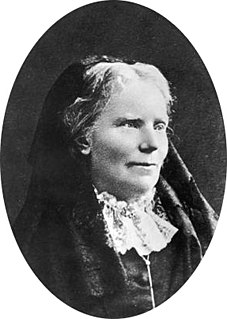A Quote by Jacqueline Woodson
I love the physical act of writing as well as how I grow which each situation I put on the page.
Related Quotes
Writing for the page is only one form of writing for the eye. Wherever solemn inscriptions are put up in public places, there is a sense that the site and the occasion demand a form of writing which goes beyond plain informative prose. Each word is so valued that the letters forming it are seen as objects of solemn beauty.
I think all writing is about writing. All writing is a way of going out and exploring the world, of examining the way we live, and therefore any words you put down on the page about life will, at some level, also be words about words. It's still amazing, though, how many poems can be read as being analogous to the act of writing a poem. "Go to hell, go into detail, go for the throat" is certainly about writing, but it's also hopefully about a way of living.
When you are writing a spoken word poem, the tools you're working with are your voice, your body, how it's going to sound to someone when you're saying it out loud. Which is different from when you're writing it on the page. That toolbox becomes how does this look visually on the page, how does this read among pages, how is this in relation to poems that are before it or after it. I don't think one is better or more successful than the other. You've just gotta think about "what are the tools I'm using, and how are they most effective in this form?"
Writing is an act of hope. It means carving order out of chaos, of challenging one's own beliefs and assumptions, of facing the world with eyes and heart wide open. Through writing we declare a personal identity amid faceless anonymity. We find purpose and beauty and meaning even when the rational mind argues that none of these exist. Writing therefore, is also an act of courage. How much easier is it to lead an unexamined life than to confront yourself on the page?
When you're writing TV or movies your vernacular is time, it's all based on rhythms, a character takes a beat or two characters have a moment, like everything is about time. And when you're writing a comic, everything is about space. It's how many panels to put on a page, when should you do a full page splash, what is the detail that you see in any particular image.
You can approach the act of writing with nervousness, excitement, hopefulness, or even despair - the sense that you can never completely put on the page what's in your mind and heart. You can come to the act with your fists clenched and your eyes narrowed, ready to kick ass and take down names. You can come to it because you want a girl to marry you or because you want to change the world. Come to it any way but lightly. Let me say it again: you must not come lightly to the blank page.
All writing, all art, is an act of faith. If one tries to contribute to human understanding, how can that be called decadent? It's like saying a declaration of love is an act of decadence. Any work of art, provide it springs from a sincere motivation to further understanding between people, is an act of faith and therefore is an act of love.
You have to find a way of shutting the future out and focusing on the writing. One of the problems I'll have with writing my second book is getting back into a situation where I think about the words on the page rather than the publishing industry, or success, or any kind of readership I may now have. I'll have to do what writers do, which is focus on the story and nothing else.
I love writing songs with people, which is about really taking risks, throwing yourself over the falls and really seeing what you're made of and seeing how it sticks. Seeing how others react to it, and seeing also how it can become a melody and how it can really take off from your experience. It's a way of seeing life unfold on the page before me.
When I'm writing comics, I'm also visualizing how the story will look on the page - not even always art-wise, but panel-wise, like how a moment will be enhanced dramatically by simply turning a page and getting a reveal. It requires thinking about story in a way I never had to consider when I was writing prose.
It is a well-established fact that in healthy loving women, uninjured by the too frequent lesions which result from childbirth, increasing physical satisfaction attaches to the ultimate physical expression of love. ... Love between the sexes is the highest and mightiest form of human sexual passion.






































